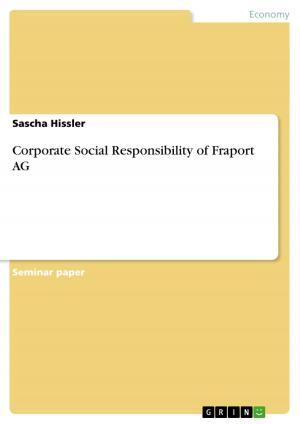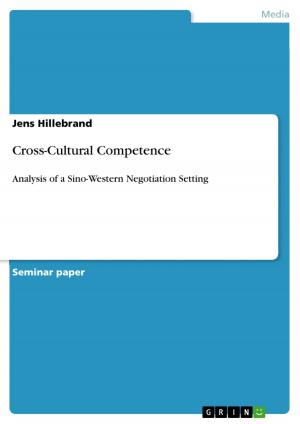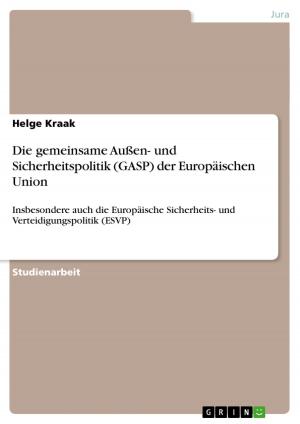Compliment Responses in Different Languages and the Problem of Sociocultural Transfer in SLA
Nonfiction, Entertainment, Drama, Anthologies| Author: | Natalie Lewis | ISBN: | 9783638268981 |
| Publisher: | GRIN Publishing | Publication: | April 17, 2004 |
| Imprint: | GRIN Publishing | Language: | English |
| Author: | Natalie Lewis |
| ISBN: | 9783638268981 |
| Publisher: | GRIN Publishing |
| Publication: | April 17, 2004 |
| Imprint: | GRIN Publishing |
| Language: | English |
Seminar paper from the year 2003 in the subject English Language and Literature Studies - Linguistics, grade: 2,0 (B), Free University of Berlin (Institute for English Philology), course: Second Language Aquisition, language: English, abstract: In most speech communities, the speech act of complimenting is a well established politeness strategy. While the giving of and responding to compliments can be regarded as rather universal across different languages and cultures, the form, frequency and function of compliments and compliment responses significantly varies. In the following chapters, I would like to compare English compliment responses to realizations of the same speech act in Chinese and German. Since the 1970s, sociolinguists have turned towards research on communicative competence, thereby focussing on native speaker's performance of speech acts (e.g. compliments, apologies, requests, complaints etc.). In the last three decades, the speech event of complimenting and compliment responding has been one of the major areas on which sociolinguistic research has focussed on. There are extens ive studies on this respective speech act in American English (e.g. Pomerantz 1978, Manes and Wolfson 1980) as well as comparative cross-cultural research on complimenting behavior, examining the differences in speech act realization between variants of English (American /Irish , e.g. Schneider 1999; American /South African, e.g. Herbert 1989), and between English and other languages (Chinese, e.g. Chen 1993; German, e.g. Golato 2002). These studies of communicative competence make apparent that communicating effectively and efficiently in a language requires more than just linguistic knowledge; the ability to use this linguistic knowledge appropriately in the given sociocultural context is also essential. Learners with insufficient pragmatic knowledge frequently transfer patterns from their native language into the foreign language. Second language teaching profits from studies in communicative competence because it provides teachers with information on realization strategies concerning certain speech acts in different languages.
Seminar paper from the year 2003 in the subject English Language and Literature Studies - Linguistics, grade: 2,0 (B), Free University of Berlin (Institute for English Philology), course: Second Language Aquisition, language: English, abstract: In most speech communities, the speech act of complimenting is a well established politeness strategy. While the giving of and responding to compliments can be regarded as rather universal across different languages and cultures, the form, frequency and function of compliments and compliment responses significantly varies. In the following chapters, I would like to compare English compliment responses to realizations of the same speech act in Chinese and German. Since the 1970s, sociolinguists have turned towards research on communicative competence, thereby focussing on native speaker's performance of speech acts (e.g. compliments, apologies, requests, complaints etc.). In the last three decades, the speech event of complimenting and compliment responding has been one of the major areas on which sociolinguistic research has focussed on. There are extens ive studies on this respective speech act in American English (e.g. Pomerantz 1978, Manes and Wolfson 1980) as well as comparative cross-cultural research on complimenting behavior, examining the differences in speech act realization between variants of English (American /Irish , e.g. Schneider 1999; American /South African, e.g. Herbert 1989), and between English and other languages (Chinese, e.g. Chen 1993; German, e.g. Golato 2002). These studies of communicative competence make apparent that communicating effectively and efficiently in a language requires more than just linguistic knowledge; the ability to use this linguistic knowledge appropriately in the given sociocultural context is also essential. Learners with insufficient pragmatic knowledge frequently transfer patterns from their native language into the foreign language. Second language teaching profits from studies in communicative competence because it provides teachers with information on realization strategies concerning certain speech acts in different languages.















